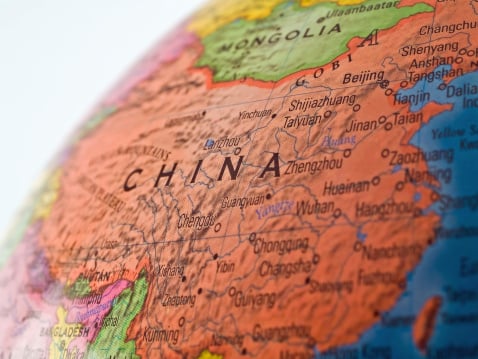The state with the most jobs lost to China on a percentage basis? Oregon at 3.67% between 2001 and 2013, according to the Economic Policy Institute. But the carnage does not stop there, according to the research. The total job loss is 3.2 million. However, what the study does not tell is whether U.S. jobs have been added due to trade with the People’s Republic. Source: Thinkstock
Source: Thinkstock
In particular:
Since China entered the World Trade Organization in 2001, the massive growth of trade between China and the United States has had a dramatic and negative effect on U.S. workers and the domestic economy. Specifically, a growing U.S. goods trade deficit with China has the United States piling up foreign debt, losing export capacity, and losing jobs, especially in the vital but under-siege manufacturing sector. Growth in the U.S. goods trade deficit with China between 2001 and 2013 eliminated or displaced 3.2 million U.S. jobs, 2.4 million (three-fourths) of which were in manufacturing. These lost manufacturing jobs account for about two-thirds of all U.S. manufacturing jobs lost or displaced between December, 2001 and December 2013.
The top 10 states by percentage:
In percentage terms, the jobs lost or displaced due to the growing goods trade deficit with China in the 10 hardest-hit states ranged from 2.44 percent to 3.67 percent of the total state employment: Oregon (62,700 jobs lost or displaced, equal to 3.67 percent of total state employment), California (564,200 jobs, 3.43 percent), New Hampshire (22,700 jobs, 3.31 percent), Minnesota (83,300 jobs, 3.05 percent), Massachusetts (97,200 jobs, 2.96 percent), North Carolina (119,600 jobs, 2.85 percent), Texas (304,700 jobs, 2.66 percent), Rhode Island (13,200 jobs, 2.58 percent), Vermont (8,200 jobs, 2.51 percent), and Idaho (16,700 jobs, 2.44 percent).
What the institute does not calculate, unfortunately, is jobs added because of trade with China. This might well include companies like Boeing Co. (NYSE: BA), which has sold planes to the People’s Republic and airlines there. Also not included are the entertainment industry (which makes films and television shows shown in China) and tech jobs, as Chinese buy everything from PCs to smartphones. Some would argue that many of these goods and products have been pirated. That does not negate, completely, those things that are sold legitimately.
ALSO READ: Classic American Brands That Are Foreign Owned
Sponsored: Attention Savvy Investors: Speak to 3 Financial Experts – FREE
Ever wanted an extra set of eyes on an investment you’re considering? Now you can speak with up to 3 financial experts in your area for FREE. By simply
clicking here you can begin to match with financial professionals who can help guide you through the financial decisions you’re making. And the best part? The first conversation with them is free.
Click here to match with up to 3 financial pros who would be excited to help you make financial decisions.
Thank you for reading! Have some feedback for us?
Contact the 24/7 Wall St. editorial team.



